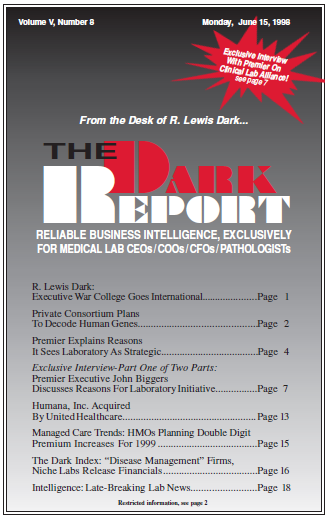Two DISEASE MANAGEMENT FIRMS enjoyed strong revenue growth during the first quarter of 1998. UroCor, Inc. and Impath Inc. posted revenue increases of 31% and 49%, respectively, over first quarter 1997. UroCor is the disease management company which serves urologists throughout the United States. The company’s first quarter financial performance showed strong revenue growth but …
“Disease Management” Firms, Niche Labs Release Financials Read More »
To access this post, you must purchase The Dark Report.


